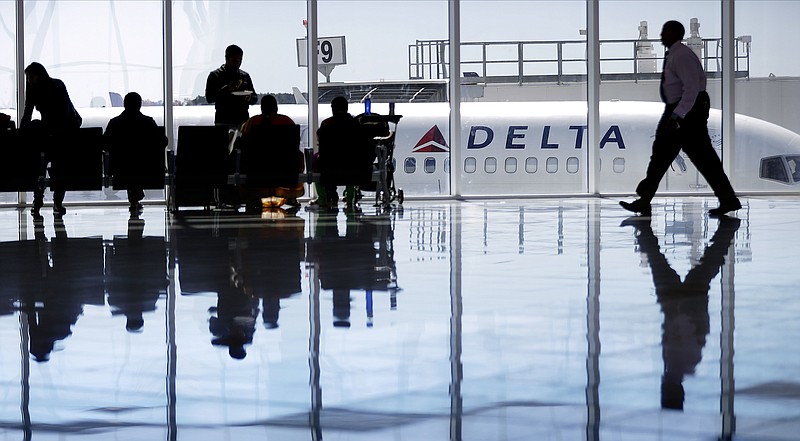ATLANTA - For the past two years, Delta Air Lines has spearheaded a campaign to get Washington policymakers to punish some of its fiercest fast-growing competitors from the Persian Gulf.
The Atlanta-based carrier's push has been largely fruitless so far, but that may soon change if a provision included in the Senate's tax bill becomes law.
Sen. Johnny Isakson, R-Ga., added language to his party's tax plan this month that would crack down on income tax exemptions provided to some of Delta's international competitors. The provision is seen as specifically targeting three airlines based in Qatar and the United Arab Emirates: Etihad, Emirates and Qatar Airways.
Delta and its two biggest U.S. competitors, United and American Airlines, have been pressuring the federal government to intervene against the three foreign carriers for several years. The push has ignited an increasingly spiteful international battle.
The U.S. carriers say their Persian Gulf counterparts are unfairly subsidized by their oil-rich governments, violating the spirit of international aviation trade deals that essentially function as free-trade agreements. They and their allies in Congress say subsidies totaling more than $40 billion are keeping ticket prices artificially low and giving the three foreign carriers an unfair advantage over private American companies, particularly in the fast-growing Asian, European and Middle Eastern markets.
"Foreign airlines should not receive preferential tax treatment if their countries choose not to open their markets to U.S. companies," said Isakson, a member of the tax-writing Finance Committee.
Executives from the Persian Gulf airlines have disputed the characterization, saying American companies are also subsidized and that they are trying to bully their way out of a problem.
The proposed provision would require foreign airlines to pay American corporate tax rates if their home countries don't have an income tax treaty with the U.S., and if American carriers fly there less than twice a week. It's still unclear whether the language could affect airlines from non-Persian Gulf countries.
The three Persian Gulf carriers do not pay U.S. corporate taxes.
Congress estimates that the amendment would force foreign airlines to pay about $200 million in additional taxes over the next decade, money that Senate Republicans are counting on to help pay for corporate and individual tax cuts elsewhere in the bill.
Delta declined to comment, as did the Partnership for Open & Fair Skies, a group set up by U.S. airlines and allied trade organizations to fight the Persian Gulf carriers.
If the language in the Senate bill becomes law, it would heat up an increasingly testy relationship between airlines from the U.S. and the Persian Gulf.
Qatar Airways CEO Akbar al Baker has chastised the U.S. carriers for providing "crap service" and reducing capacity "to keep prices high against the interests of the customers."
Al Baker and some of his counterparts have said that U.S. carriers get subsidies too, in the form of Chapter 11 bankruptcy protection, federal loan guarantees after the Sept. 11, 2001, terrorist attack and other preferential treatment from state and local governments. Top U.S. carriers say bankruptcy protections do not count as subsidies.
Not all American airline and travel interests are on the three U.S. airlines' in this fight.
The U.S. Travel Association, which represents the travel industry, has said U.S. carriers are attempting to quash competition that could help to lower fares and increase consumer choice. And Boeing, which sells its airplanes to Middle Eastern carriers, wants the skirmishes to end.
